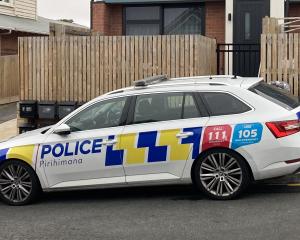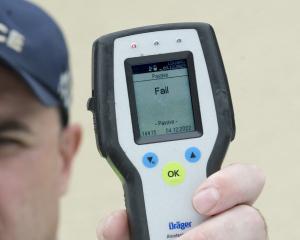Amid the rain and a crowd of eager spectators, a kiwi chick was released at the Orokonui Ecosanctuary yesterday afternoon.
The chick, whose caretakers named him Ben, was one of five Haast tokoeka chicks who arrived at the ecosanctuary yesterday.
Rain pelted down outside as ecosanctuary members and visitors attended a ceremony welcoming the chicks to the sanctuary.
Those attending then filed past Ben, taking pictures, while he stuck his head into the armpit of the Department of Conservation ''kiwi team'' member holding him, Sian Bent.
The group then headed outside into the downpour to see - or attempt to see - Ben being put into a makeshift burrow, which had been structured to mimic the holes and hollow logs kiwis inhabit in the wild.
The other four chicks were to be released later yesterday afternoon, away from the public, because the ordeal was ''quite stressful'' for the chicks, Ms Bent said.
Doc senior ranger James Livingstone was a member of the team that travelled with the chicks to Dunedin.
''They were really pecky earlier when I checked on them,'' he said, showing his hands as proof.
The chicks' eggs had been retrieved from their natural environment in the Haast Ranges and incubated at the West Coast Wildlife Centre in Franz Josef.
''It might be difficult for the chicks to be [raised] away from their parents, but we have to do it,'' Mr Livingstone said.
''Less than 5% - and probably closer to 1% - of chicks will survive if birthed in the wild.
''If we didn't retrieve the eggs, [the kiwis] would become extinct.''
The biggest danger to kiwi chicks was stoats, he said.
The ecosanctuary had adult kiwis, but it was the first time it had ''creched'' new chicks.
''This is a very important day for us,'' Makaawhio kaumatua Richard Wallace, from the West Coast, said when he spoke at the opening ceremony.













